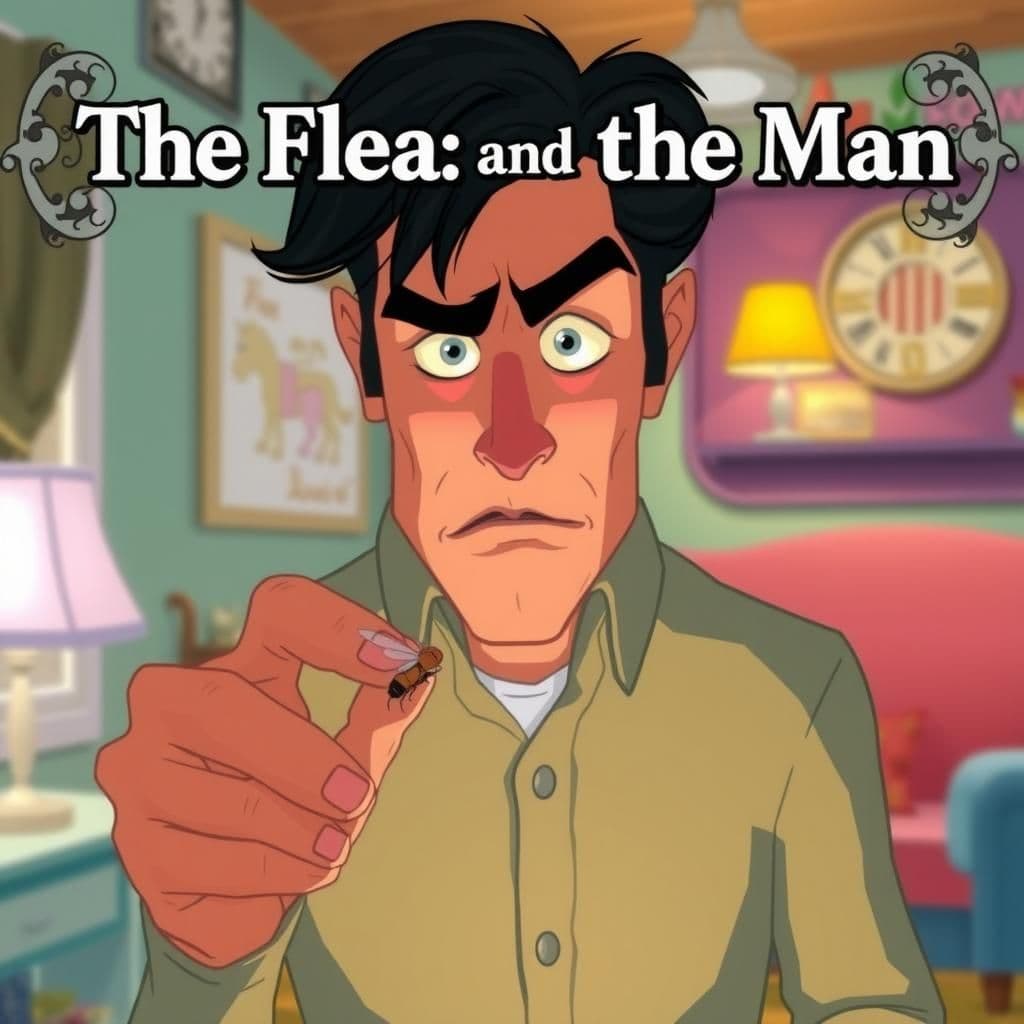The Flea and the Man
In the well-known moral story "The Flea and the Man," a man, exasperated by a flea's incessant biting, captures it and confronts its plea for mercy. The flea argues that its harm is minimal, but the man, finding humor in the situation, decides to kill it, asserting that no wrongdoing, regardless of its size, should be tolerated. This short story with moral serves as a humorous reminder that even the smallest offenses deserve acknowledgment and action.

Reveal Moral
"The moral of the story is that no wrongdoing, regardless of its size, should be overlooked or tolerated."
You May Also Like

The Man and the Lion
A man and a lion boast about their superiority while traveling together, leading to a dispute that reflects the themes found in famous moral stories. When they encounter a statue depicting a lion being strangled by a man, the man claims it showcases human strength, but the lion counters that it represents a biased perspective, suggesting that if lions could create statues, the roles would be reversed. This very short moral story illustrates that the lessons learned from stories can vary greatly depending on the storyteller's viewpoint.

The Trees and the Axe
In "The Trees and the Axe," a man humorously asks the Trees for a young ash-tree to create a handle for his axe, which they willingly sacrifice. However, as he swiftly cuts down the forest's strongest giants, an old oak laments that their consent has led to their own demise, illustrating a powerful moral about the consequences of sacrificing one for the many. This short moral story serves as a poignant reminder for personal growth, emphasizing the importance of protecting one's rights to ensure collective survival.

The Wolf the Fox and the Ape
In "The Wolf the Fox and the Ape," a Wolf accuses a Fox of theft, but the Fox staunchly denies the accusation. An Ape, serving as a judge, concludes that the Wolf likely never lost anything, yet he believes the Fox is guilty of stealing. This moral-based storytelling illustrates a simple lesson from stories: dishonest individuals gain no credit, even when they pretend to act honestly, making it a fitting bedtime moral story for students.